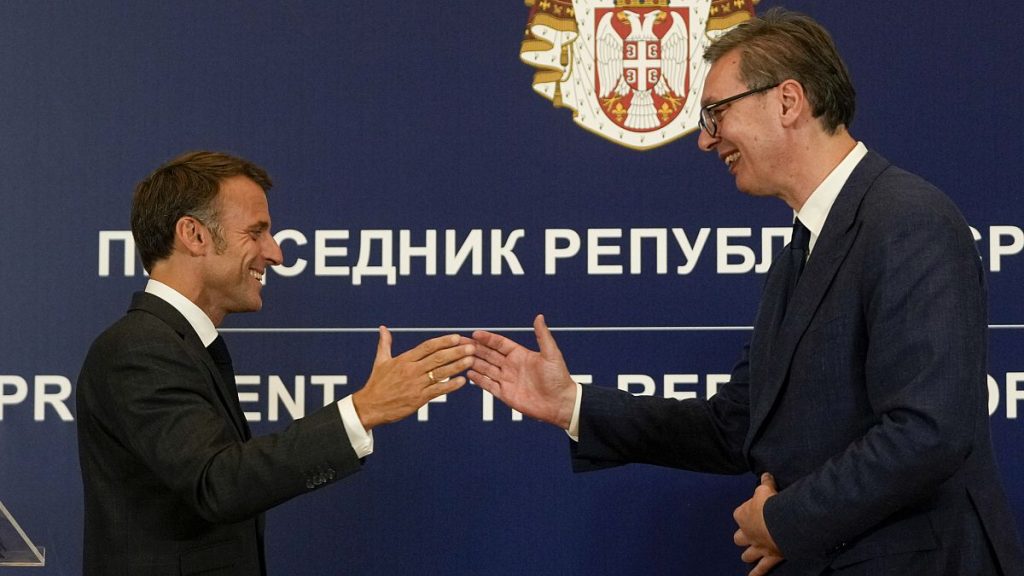Despite seeking European Union membership, Serbia has struggled to make progress in the areas of rule of law and democratic reforms under President Alexander Vučić’s increasingly autocratic rule. French President Emmanuel Macron recently signed a deal with Vučić to sell Serbia 12 Rafale fighter jets, marking a shift away from its reliance on Russian arms. This move was seen as an attempt to strengthen Serbia’s ties with the EU, with Macron praising Serbia for its “demonstration of European spirit.” The €2.7 billion deal includes a complete logistical package and represents a strategic choice for both countries in building a stronger, more sovereign Europe.
While Russia has traditionally been Serbia’s main supplier of military aircraft, the decision to purchase Rafale fighter jets from France has raised concerns regarding potential sharing of sophisticated technology with Russia. The rapid arming of the Serbian military has also sparked worry among neighboring countries, especially given the region’s history of violence following the breakup of the former Yugoslavia in the 1990s. Serbia’s close proximity to NATO member countries adds to the complex geopolitical dynamics at play, with some questioning the implications of selling advanced weaponry to a Russian ally that has shown occasional aggression towards its Balkan neighbors.
In a letter to the Serbian public, Macron emphasized the importance of Serbia’s EU future, urging the nation to pursue strong and democratic ties with the European Union. He acknowledged the challenges and fatigue surrounding EU accession talks but highlighted the necessity of a strong and sovereign European Union for Serbia to defend and promote its interests while preserving its identity. Macron also cautioned against Serbia’s “balancing game” between world powers after Russia’s invasion of Ukraine, noting that aligning with the EU would better protect Serbia’s interests in the long run.
The lack of progress in rule of law and democratic reforms under Vučić’s leadership has been a major obstacle for Serbia’s EU membership aspirations. Despite formally seeking to join the 27-nation bloc, the country has struggled to meet the main preconditions set by the EU in terms of governance and transparency. Macron’s visit to Belgrade and the signing of the Rafale deal were seen as attempts to strengthen Serbia’s ties with the EU and foster a closer relationship based on shared values and strategic interests. However, concerns remain regarding Serbia’s domestic governance and its potential role in regional security dynamics.
The sale of Rafale fighter jets to Serbia represents a significant shift in the country’s traditional reliance on Russian arms, with Macron hailing the deal as a milestone in strengthening bilateral ties between France and Serbia. The comprehensive package, including spare engines and logistical support, is aimed at modernizing Serbia’s fleet and enhancing its military capabilities. The decision to purchase Rafales also reflects a broader strategic choice for Serbia in aligning itself with a more sovereign and autonomous Europe, while diversifying its military partnerships beyond its traditional alliances.
The broader implications of the Rafale deal and Serbia’s potential EU membership highlight the complex geopolitical landscape in the Balkans and the delicate balance of power in the region. As Serbia navigates its relationship with the EU, Russia, and other neighboring countries, questions remain about the country’s foreign policy objectives and the extent of its military modernization efforts. Macron’s visit and the strategic alignment between France and Serbia through the Rafale deal underscore the significance of balancing regional security concerns with the broader goals of promoting democratic values and European integration in the Western Balkans.













